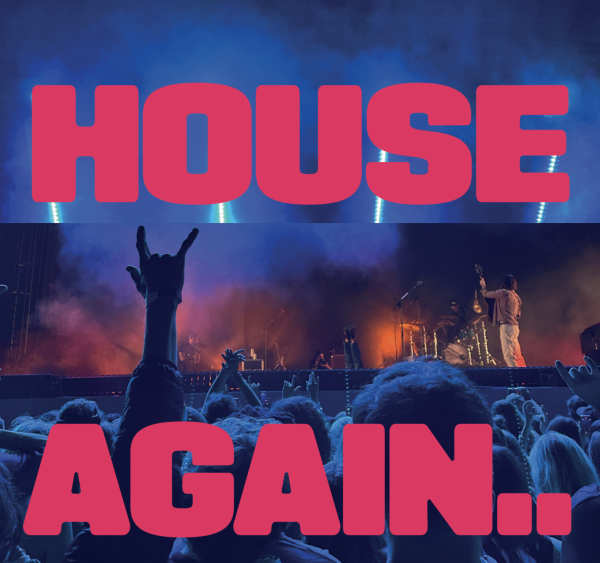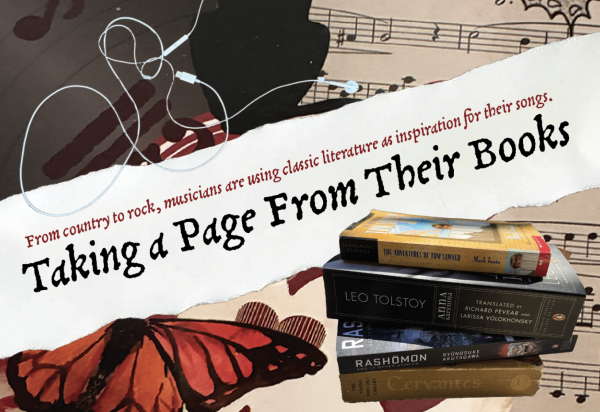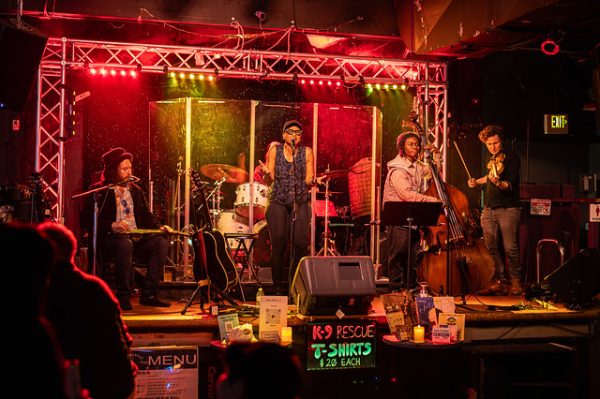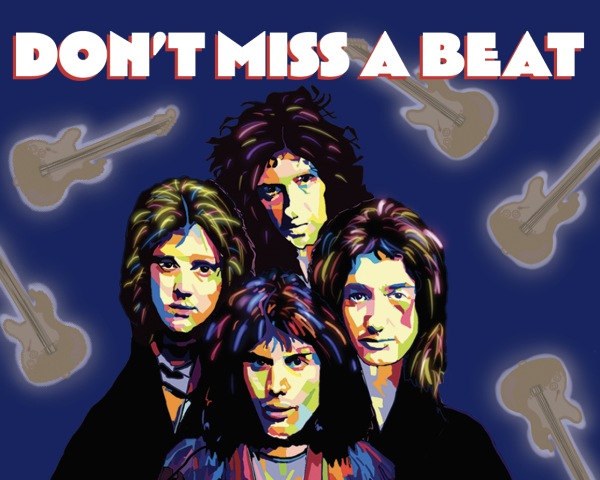The Dotted Line
On March 28, Lil Uzi Vert released the track “Free Uzi,” a protest of his record label. Rappers continue to call out their labels for abuse, so why do they keep signing?
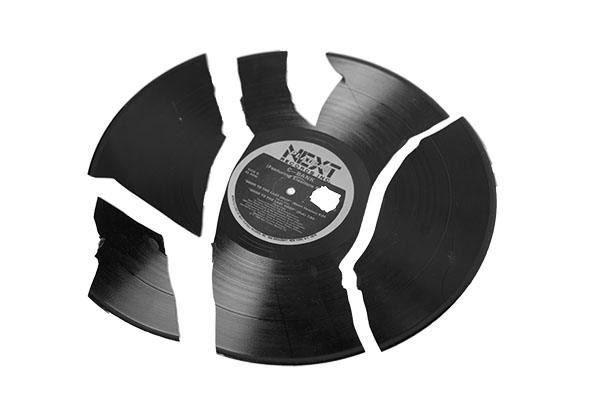

For many rappers, music is an outlet to communicate their thoughts, fears and feelings, eventually releasing their creations for the world to hear. But for a record label, each unique and talented artist is reduced to a mere business commodity, a source of revenue or a numerical figure on a page. This personal and vulnerable art is distorted into a formula, with the sum being streams, sales and profit. Big labels promise instant money and publicity, but many young artists fail to read the fine print and certainly are not trained lawyers. The deal is then inked and the artist now has more money than they have ever seen — but this instant gratification is doomed in the case of many. In the long run, these deals can end up costing artists millions of dollars, not to mention the creative freedom which breathes life into their creative process.
This is not an issue that is new to the music industry. In 1995, Prince performed with the word “slave” inked across his cheek in protest of his label, Warner Bros. Around the same time, George Michael dubbed his contract with Sony, “professional slavery.” However, more and more people are becoming aware of this dark side of the industry, with A-list artists speaking out against their labels, along with the virality factor of social media. Rappers, such as Kid Cudi, Jay-Z, GZA and Denzel Curry, are some of the many who have used their experience with labels as a source of inspiration when it comes to producing new music; letting people know what they are getting themselves into when signing with a major record label and sharing their personal grievances with their deals. Record labels have placed harsh conditions on rappers, discouraging ingenuity within their songs in favor of the commercial appeal. Frustrated with these restrictions, some rappers have been driven to become independent artists. With no label executive confining their style or sound, they are able to explore their creativity to the fullest extent and experiment with their own ability. The internet has played a key role in allowing for an artist to succeed independently, as they are able to accomplish on their own what the primary purpose of a major label is: marketing.
Even with new platforms allowing artists to make it on their own, major record labels continue to convince new artists that they must be signed if they wish to truly succeed. In order to compete in the new age of music, the modern record deal has changed to be known as a 360 deal. This entitles the label to a percentage of the artist’s profits, including money made from brand deals, media appearances and more. With the rise of rap as the dominant music genre on the charts, rappers’ deals are getting bigger and bigger, with artists such as A$AP Rocky, Chief Keef, Young Thug and countless more cashing in multi-million dollar deals. Amidst all of the changes in the modern music industry, what remains the same are the misleading tactics that record labels use on aspiring rappers to sign them to one-sided deals, preying upon their dreams of fame and fortune. The American rapper GZA, formerly a member of the Wu-Tang Clan, has spoken and rapped about the issue.
“So sometimes people gotta come out and speak up, and let people understand that you know you gotta read the label, if you don’t read the Label you might get poisoned,” he raps in his song “Labels.” He starts off by confronting how taboo the subject is in the industry, then goes on to warn up-and-coming rappers about the dangers of contracts and record labels. GZA, like many, has had disputes with his label, but unlike most, he has spoken out about the subject. In the iconic Wu-Tang Clan song, “Protek Ya Neck,” he addresses the cultural differences and shortcomings between many major labels and the rappers they represent.
“First of all, who’s your A&R? A mountain climber who plays an electric guitar? But he don’t know the meaning of ‘dope,’ When he’s looking for a suit-and-tie rap.”
GZA references the labels’ A&R, the talent scout for a record label, making reference to how little certain labels understand or appreciate the art that they profit off of. This point is still brought up today, with many African American rappers coming from low-income areas while the label executives and managers who represent them come from different and typically more privileged backgrounds. While the great majority of labels act within the law, many will use a rapper’s lack of legal experience or education against them to write a deal that does not favor the artist.
With record labels placing deadlines on rappers to produce more music, the creative process is sped up and the content is simplified into a quality-over-quantity esque production cycle. The process resembles that of a typical nine-to-five job and no longer is the artist putting as much passion into their music, especially when record executives can veto anything they think does not fit their desired brand for the artist. Some artists now only rap because of their contract, with their once burning passion and love for rap diminished. On the contrary, some rappers complain that their label withholds their music, as to not flood the market and consequently decrease sales; a controlling nature of a big label that has artists anxious at the thought of being locked into a bad contract, and others living in that reality.
Although countless rappers battle with the politics of being signed to a major label, there are plenty of successful rappers opting to follow the route of an independent artist. The explosion of talent on the SoundCloud scene, as well as the popularity of YouTube, is making it much more viable to take this route and still compete in sales. These independent rappers are making incredible steps for the hip-hop industry, with many artists referencing their choice through their music and cautioning artists from signing a deal prematurely or ignorantly. Rappers such as Chance The Rapper, Joey Bada$$ and Tyler, The Creator have made huge waves in the industry as independent creators. Recently, Tyler, The Creator earned the spot of #1 on the Billboard Top 100 with his album “Igor,” overtaking DJ Khaled, an industry giant. Not only does this impressive accolade reveal the possibilities for an independent artist, but it also inspires, as a David versus Goliath story of the music industry. While a big label can certainly be beneficial, there is no denying that in 2019 the ceiling for an independent artist will continues to elevate.
Photos by: Natalie Schilling
2019-2020 - Staff Writer
2020-2021 - Creative Director
Hear more about me!

2018-2019 - Staff Writer
2019-2020 - Social Media Manager
2020-2021 - Creative Adviser
Hear more about me!


